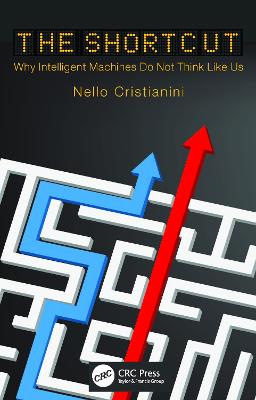
The Shortcut
Nello Cristianini
£23.99
Description
An influential scientist in the field of artificial intelligence (AI) explains its fundamental concepts and how it is changing culture and society.
A particular form of AI is now embedded in our tech, our infrastructure, and our lives. How did it get there? Where and why should we be concerned? And what should we do now? The Shortcut: Why Intelligent Machines Do Not Think Like Us provides an accessible yet probing exposure of AI in its prevalent form today, proposing a new narrative to connect and make sense of events that have happened in the recent tumultuous past, and enabling us to think soberly about the road ahead.
This book is divided into ten carefully crafted and easily digestible chapters. Each chapter grapples with an important question for AI. Ranging from the scientific concepts that underpin the technology to wider implications for society, it develops a unified description using tools from different disciplines and avoiding unnecessary abstractions or words that end with -ism. The book uses real examples wherever possible, introducing the reader to the people who have created some of these technologies and to ideas shaping modern society that originate from the technical side of AI. It contains important practical advice about how we should approach AI in the future without promoting exaggerated hypes or fears.
Entertaining and disturbing but always thoughtful, The Shortcut confronts the hidden logic of AI while preserving a space for human dignity. It is essential reading for anyone with an interest in AI, the history of technology, and the history of ideas. General readers will come away much more informed about how AI really works today and what we should do next.
Publisher Review
“The writing style is wonderful. Clear, lucid and unfussy. Very readable and very accessible. The first four chapters in particular make accessible the basic difference between rule-based programming and the pattern-based approach of ML techniques. They provide a clear and engaging account of the field’s development. These chapters also put forward a persuasive account of the notion of ‘intelligence’ and distinguish human intelligence from that of other agents – it is very well done, and convincing. The remaining chapters tackle many different applications and consequences of intelligent agents, including unintended harms, social media data harvesting, recommender systems, addiction, manipulation and polarisation, social machines and regulation.”
–Karen Yeung, Interdisciplinary Professorial Fellow in Law, Ethics and Informatics, Birmingham Law School & School of Computer Science, UK
Book experts at your service
What are you looking for?